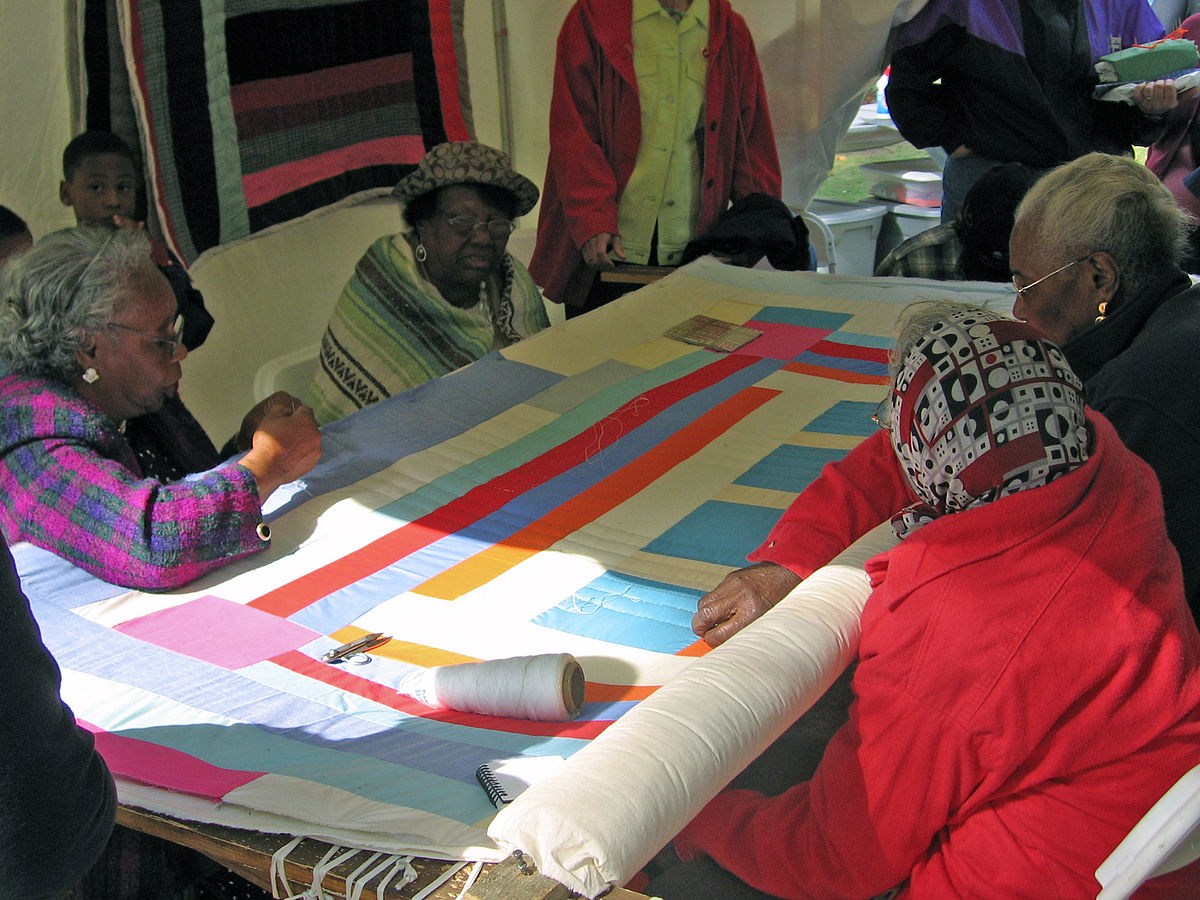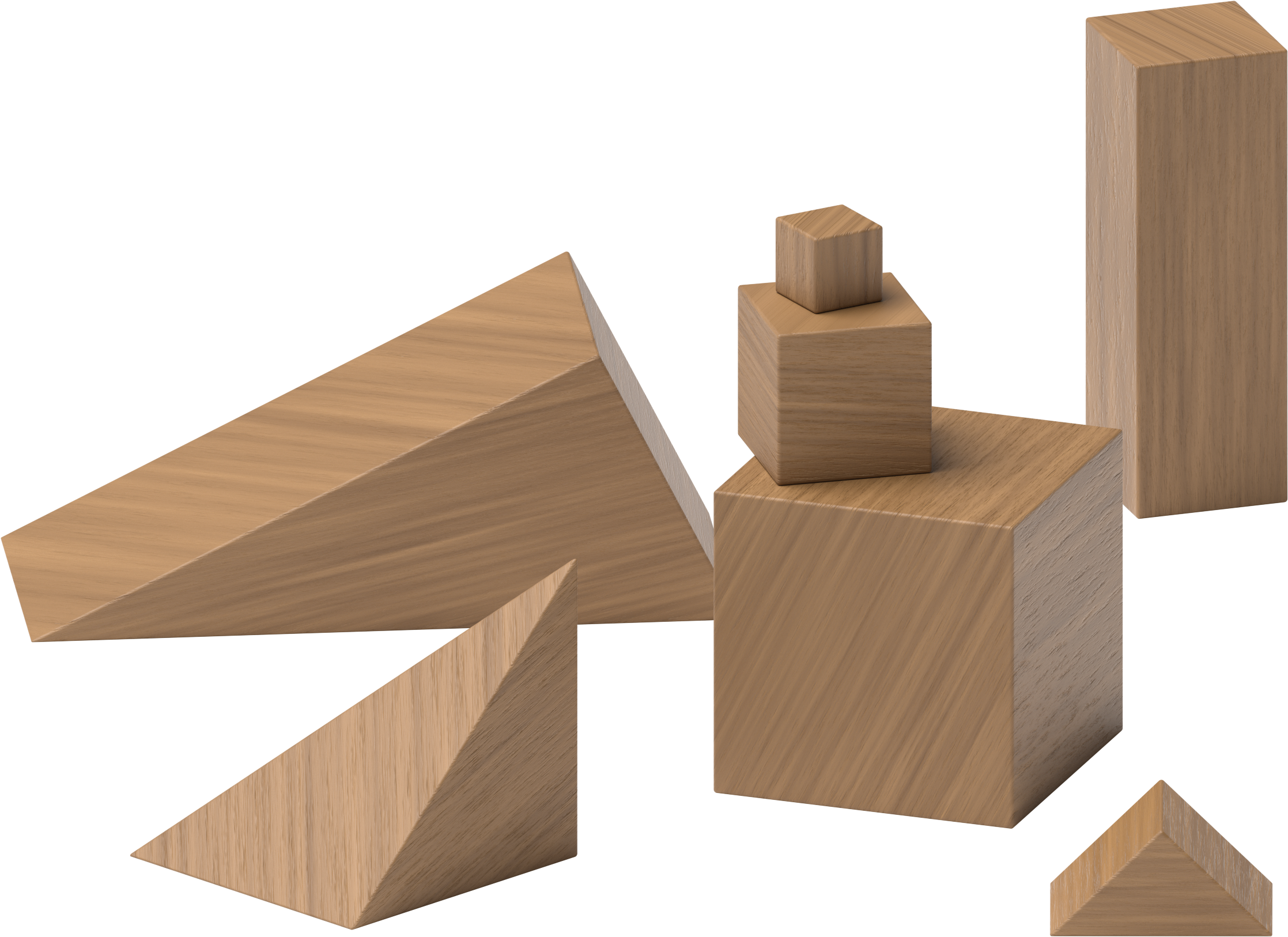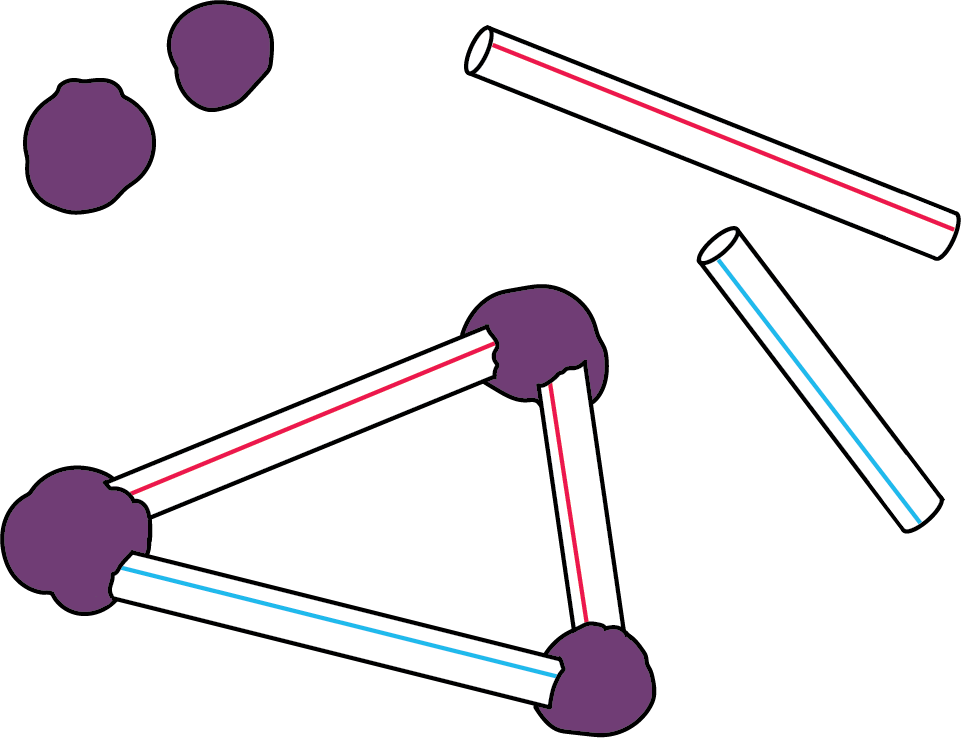Lesson 10
Put Together Pattern Blocks
Warm-up: Notice and Wonder: Quilts (10 minutes)
Narrative
The purpose of this warm-up is to elicit the idea that shapes can be combined to make patterns and pictures, which will be useful when students put together pattern blocks to make shapes in a later activity. While students may notice and wonder many things about these images, the shapes in the design of the quilt are the important discussion points.
The images in this warm-up are of quilts made by a group of women in Gee’s Bend, Alabama. Consider reading the book “Stitchin’ and Pullin’: A Gee’s Bend Quilt” by Patricia McKissack and showing students more examples of quilts as a part of the Notice and Wonder activity. Examples of quilts from the book that are made of different shapes than the one shown in the student workbook will give students the opportunity to notice and wonder different things.
Launch
- Groups of 2
- Display the image.
- “What do you notice? What do you wonder?”
- 30 seconds: quiet think time
Activity
- “Discuss your thinking with your partner.”
- 1 minute: partner discussion
- Share and record responses.
Student Facing
What do you wonder?

Synthesis:

Student Response
For access, consult one of our IM Certified Partners.
Activity Synthesis
- Display the image:

- Consider displaying images of other quilts from this website: https://www.soulsgrowndeep.org/quilt-categories/patterns-geometry
- “These pictures show quilts that are made by women in Gee’s Bend, Alabama. What shapes do you see in the quilts?” (There are rectangles, squares, and circles.)
- “Where do you see shapes that are put together to make another shape?” (There are a lot of rectangles that make a square. There are rectangles that are put together to make a bigger rectangle.)
Activity 1: Introduce Pattern Blocks, Count Out and Build (10 minutes)
Narrative
The purpose of this activity is for students to learn stage 4 of the Pattern Blocks center within the context of the warm-up. Students put together pattern blocks to form larger shapes. Students practice recognizing written numbers and counting out a given number of objects. Students describe and compare the shapes that they create.
In this activity, students put together the pattern blocks to make their own quilt. Consider taking pictures of the designs that students create and combining them to make a class quilt. Students may or may not put the pattern blocks together to look like something specific, such as a boat or a square. The recording sheet is printed in the student book for this activity. The blackline master is available for students to use during center activities in future lessons.
Advances: Representing, Conversing
Supports accessibility for: Visual-Spatial Processing, Conceptual Processing
Required Materials
Launch
- Groups of 2
- “Shapes are often put together to make things like clothes, blankets, and quilts. Does your family have or make any special blankets or quilts that have shapes on them? How would you describe them?”
- 30 seconds: quiet think time
- Share responses.
- Give each group of students pattern blocks.
- “We are going to learn a new way to do the Pattern Blocks center. It is called Count Out and Build. You are going to count out the pattern blocks and use them to make your own pattern for a quilt.”
- Display the student book.
- “The numbers tell me how many of each pattern block I need to count out. How many orange square pattern blocks do I need?” (4)
- 30 seconds: quiet think time
- Share responses.
- “Count out the pattern blocks. Then put your pattern blocks together to make a pattern for a quilt. Tell your partner about what you are making.”
Activity
- 3 minutes: partner work time
- “This sentence says ‘I used more _____ than _____.’ I can draw a picture of the pattern block or write a word. If I use more triangles than squares, I can draw a triangle on the first line and a square on the next line.”
- Demonstrate drawing a triangle and a square.
- “My sentence says ‘I used more triangles than squares.’ Fill in the sentence about your quilt.”
- 2 minutes: independent work time
- If time, invite students to count out the pattern blocks listed on the second page and create another quilt.
Student Facing

green triangles

yellow hexagons

blue rhombuses

orange squares
I used more ____________________ than ____________________.

blue rhombuses

yellow hexagons

tan rhombuses

green triangles
I used more ____________________ than ____________________.
Student Response
For access, consult one of our IM Certified Partners.
Activity Synthesis
- Invite students to share the shapes they made with pattern blocks.
- Display two student-created shapes.
- “What is the same about the shapes? What is different about them?” (Sample responses: They both have 3 green triangles. They used the same shapes but they put them together in a different way. One of them looks like it has a smiley face in the middle.)
- “Are there more green triangle pattern blocks or blue pattern blocks? How do you know?”
Activity 2: Pattern Block Puzzles (10 minutes)
Narrative
The purpose of this activity is for students to use pattern blocks to fill in simple puzzles. Students need to be more precise in arranging the pattern blocks because the pattern blocks touch at the sides and corners. The puzzles are in black and white so that students are not able to determine which pattern block to use based only on color. The Pattern Block Puzzles blackline master is available for students to use during this activity.
When students make connections between the pattern blocks and the shape outlines in the puzzle, they show their ability to reason abstractly and quantitatively (MP2).
Required Materials
Launch
- Groups of 2
- Give each group of students pattern blocks.
- “In the last activity we put together pattern blocks to make quilts. We can also use pattern blocks to make things that we see in real life. Close your eyes and think about something that you see at home or in your community. Use the pattern blocks to make what you see.”
- 2 minutes: independent work time
- “Tell your partner about what you made and why.”
- 2 minutes: partner discussion
- Share responses.
- “Each puzzle looks like something we see in real life. Use the pattern blocks to fill in each puzzle. Write a number to show how many of each pattern block you used. Ask your partner a question about each puzzle using the word ‘fewer’.”
Activity
- 6 minutes: partner work time
Student Facing













Student Response
For access, consult one of our IM Certified Partners.
Activity Synthesis
- “How did you know which pattern block would fit?”
- Display the first puzzle filled in with pattern blocks:
- “What is a question that you can ask about this shape using the word ‘fewer’?” (Are there fewer green triangle pattern blocks or fewer tan pattern blocks? Are there fewer green triangle pattern blocks or yellow pattern blocks?)
Activity 3: Centers: Choice Time (25 minutes)
Narrative
The purpose of this activity is for students to choose from activities that offer practice building shapes and putting together shapes to form larger shapes.
Students choose from any stage of previously introduced centers.
- Geoblocks
- Build Shapes
- Pattern Blocks
- Less, Same, More
Students will choose from these centers throughout the section. Keep materials from these centers organized to use each day.
Required Materials
Materials to Gather
Required Preparation
- Gather materials from:
- Geoblocks, Stages 1 and 2
- Build Shapes, Stages 1 and 2
- Pattern Blocks, Stages 1-4
- Less, Same, More, Stages 1-4
Launch
- “Today we are going to choose from centers we have already learned. You can also continue playing Pattern Blocks, Count Out and Build. You can put the pattern blocks together to make a quilt or anything you choose.”
- Display the center choices in the student book.
- “Think about what you would like to do first.”
- 30 seconds: quiet think time
Activity
- Invite students to work at the center of their choice.
- 10 minutes: center work time
- “Choose what you would like to do next.”
- 10 minutes: center work time
Student Facing
Choose a center.
Geoblocks

Build Shapes

Pattern Blocks

Less, Same, More

Activity Synthesis
- Invite a student who built a shape out of straws to share.
- Invite a student who put together pattern blocks to share.
- “What is the same about the shapes that you built with straws and the shapes that we created when we put together pattern blocks? What is different?”
Lesson Synthesis
Lesson Synthesis
Display pattern blocks arranged as pictured, or display a student-created example from the first activity.

“Today we put together pattern blocks to make shapes. Describe this shape to your partner. How many green triangles are there? How many orange squares are there? Are there more green triangles or more orange squares?”
Cool-down: Unit 3, Section B Checkpoint (0 minutes)
Cool-Down
For access, consult one of our IM Certified Partners.